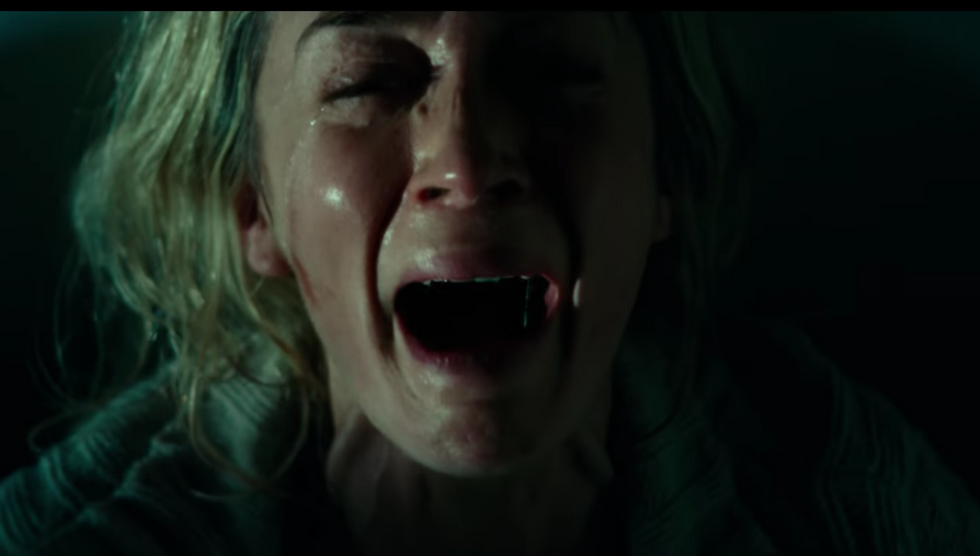Don't just turn your phone on silent. Turn it off. Take the battery out. Ensure that you are fully enveloped in the world of "A Quiet Place." This is a rare film that completely pulls you into the terrifying situations that it has created.
Never before have you seen such a subtle, brilliant movie produced by Michael Bay. The true artist at work is John Krasinski, who wrote the screenplay, directed, and starred in this tense horror flick as the unnamed father of a family of five. "Tense" is too loose of a term, however. This is a premise built around the tensest and most memorable moments of other quintessential horror flicks; silence. Perfecting that formula ensures that "A Quiet Place" is an instant classic.
Despite the copious amounts of silence, "A Quiet Place" is bereft of any dead air. It moves at a brisk pace, turning moments of calm into restlessness. The film opens with an unnamed family scavenging for supplies in an abandoned town.
We are quickly acquainted with the quick-witted daughter (Millicent Simmonds) and the younger, skittish son (Noah Jupe), who break nearly all conventions of kids in horror films. They are, naturally, scared, but never do they act in a way that we wouldn't expect children their age to act, or in a way that frustrates us and takes us out of the movie.
All exposition comes to us through the family's actions (they communicate exclusively in sign language when away from home), as well as newspaper headlines seen on the street and in the father's doomsday-style bunker. It sets up a unique narrative; monsters are at large on earth, and they hunt solely by hearing. Any loud, unusual noises will draw them at an unnaturally fast pace.
Additionally, we can tell that it is early in the apocalypse, and there was enough time after these monsters first appeared for humanity to respond, albeit unsuccessfully. It is not long, however, before misfortune befalls this family, and we meet up with them again hundreds of days later.
The movie is rife with failure. No matter how ingenious the family's preparations, no matter how careful they are, something will always go amiss.
This is a frustration that the mother, Emily Blunt, expresses at one point, alluding to the perceived hopelessness of their situation. Who are we, in all of this? This exposes a larger theme at play; the film is ultimately a story of familial love and the relationship between parents and their children.
This, in addition to stellar performances from the whole cast, makes for a compelling, heartfelt story with successful horror elements. The audience constantly anticipates the next fatal sound. The smallest utterance of words or the simplest accidental collision is equal to an explosion in a world where monsters actively hunt out of place noises.
The soundtrack is awry and warped. Marco Beltrami admits that he did not have or need a full orchestra to score the film. This is one of the occasions in which a smaller budget works toward a film's advantage.
The creature itself is horrifying; a very cool, predatorily superior design. Interestingly, the monsters in "A Quiet Place" adhere to a tight set of rules in their unending quest for living prey. Limitations are imposed upon them in a similar manner that limitations are imposed upon humanity; survival is not impossible. Take from that what you will.
A lot of love went into this movie. It is just as easy to root for the film's success as it is to root for the characters within it. From start to finish, it is a satisfying tale of fear, love, and survival.




 StableDiffusion
StableDiffusion StableDiffusion
StableDiffusion StableDiffusion
StableDiffusion Photo by
Photo by  Photo by
Photo by  Photo by
Photo by 
 Photo by
Photo by  Photo by
Photo by  Photo by
Photo by  Photo by
Photo by  Photo by
Photo by 











